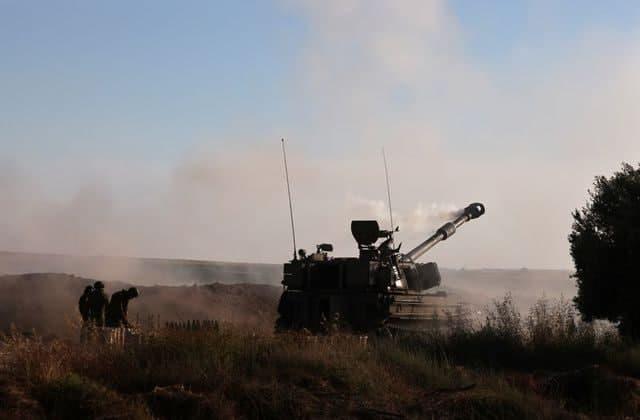TEL AVIV, May 19 (Reuters) - Israel bombarded Gaza with air strikes and Palestinian militants kept up cross-border rocket fire, with no firm sign on Wednesday of any imminent ceasefire despite international calls to end more than a week of fighting.
Israeli leaders said they were pressing on with an offensive against Hamas and Islamic Jihad, but an Israeli military spokesman acknowledged that with an estimated 12,000 missiles and mortars in the groups' Gaza arsenal, "they still have enough rockets to fire".
Two Thai workers were killed and seven people were wounded in a rocket strike on Tuesday on an Israeli farm just over the Gaza border, police said. Hamas, which rules the Gaza Strip, and Islamic Jihad claimed responsibility.
Rockets were also launched at the cities of Ashdod, Ashkelon and Beersheba, farther north, sending residents scrambling for shelter, in attacks that stretched late into Tuesday.
Gaza medical officials say 217 Palestinians have been killed, including 63 children, and more than 1,400 wounded since the fighting began on May 10. Israeli authorities say 12 people have been killed in Israel, including two children.
Israel said its aircraft attacked homes belonging to several Hamas militants that were used as command centres or for weapons storage. Early on Wednesday, Israeli artillery shelled targets in the southern Gaza Strip, witnesses said.
Nearly 450 buildings in the Gaza Strip have been destroyed or badly damaged, including six hospitals and nine primary-care health centres, since the current conflict began, the United Nations humanitarian agency said. Some 48,000 of the 52,000 displaced had gone to 58 U.N.-run schools.
Israel said more than 3,450 rockets had been launched at it from Gaza, some falling short and others shot down by its Iron Dome air defences. It put the number of militants it has killed at around 160.
Hamas began firing rockets nine days ago in retaliation for what it said were Israeli rights abuses against Palestinians in Jerusalem during the Muslim holy month of Ramadan.
By linking its confrontation with Israel to the sensitive issue of Jerusalem, Hamas also posed a challenge to its main rival, West Bank-based President Mahmoud Abbas, who last month cancelled a parliamentary election in which the group appeared likely to make gains.
The current hostilities are the most serious between the militant group and Israel in years, and in a departure from previous Gaza conflicts have helped fuel street violence in Israeli cities between Jews and Arabs.
